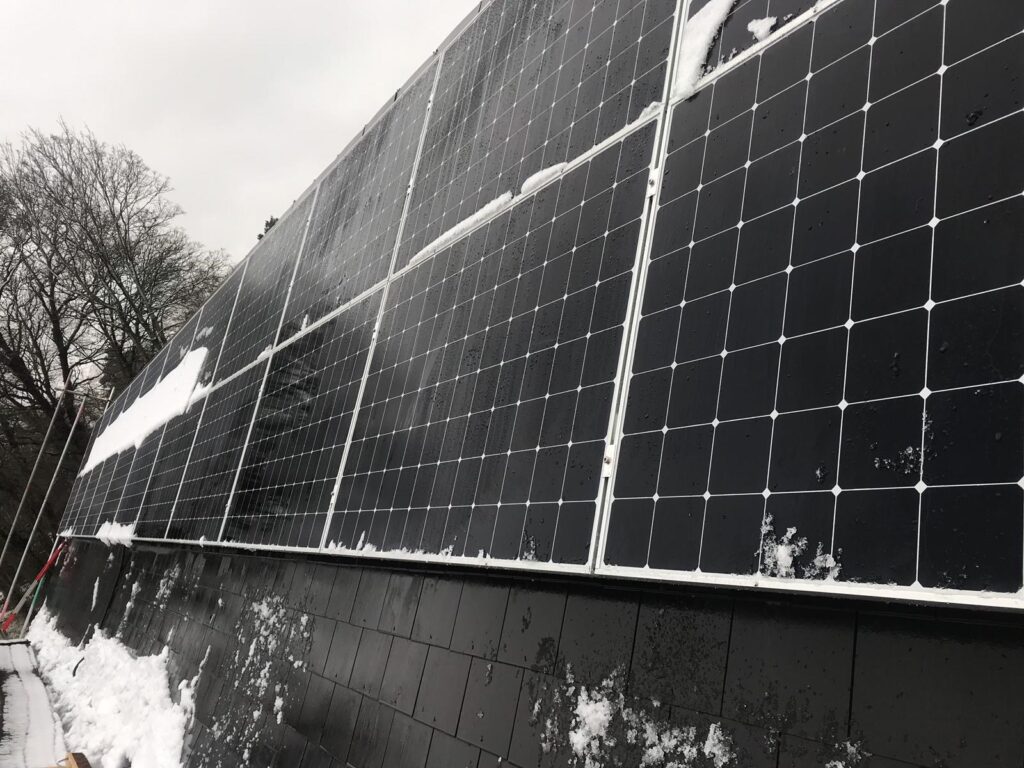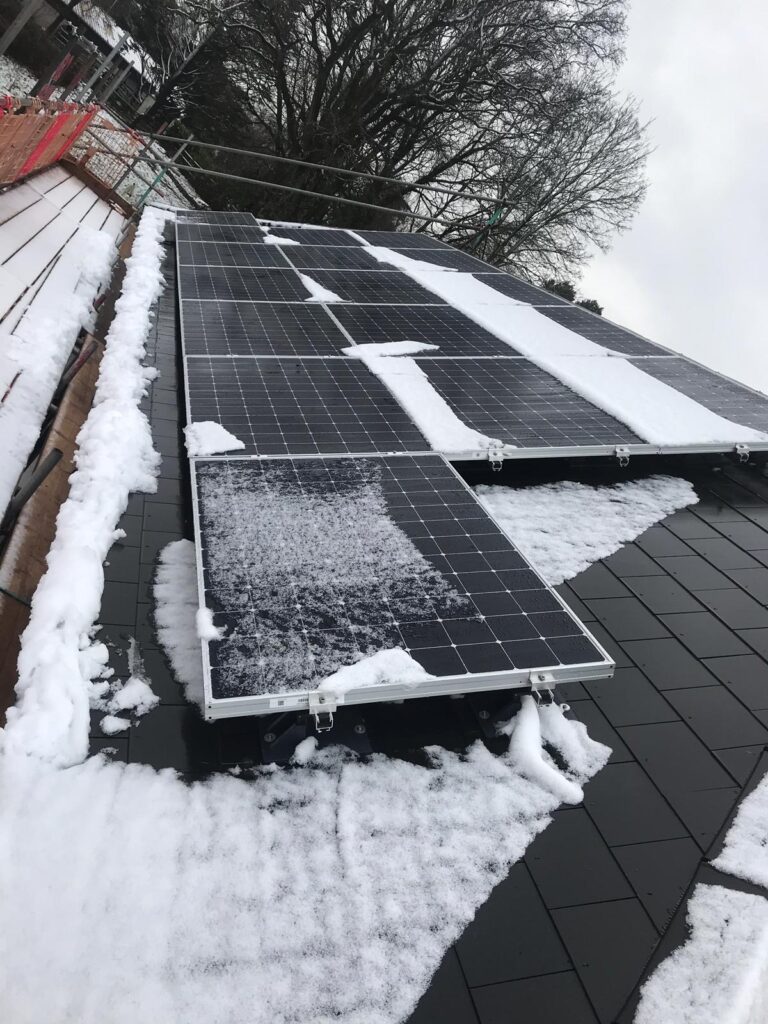Does Hail Damage Photovoltaic Solar Panels
No, in the United Kingdom, major thunderstorms with hailstones are not normally a major concern. However in some locations such as America, but hailstones cause a lot of damage to solar panels.
Photovoltaic Solar Panel modules are designed to withstand adverse weather; they are ingress-proof ( IP65, IP66, IP67 and IP68) and hailstone-rated to the IEC 61215 standard.
A PV module should withstand at a minimum the impact of a hailstone of 25 mm launched at 80 km/h, while the Swiss VKF standard demands a minimum of 40 mm.
Furthermore, this kind of damage is something to be aware of in very rare cases. The glass panel covers can sometimes become cracked if hit by major hailstones. Sometimes this can expose the module cells of the solar panels to water, which will cause low insulation resistance to strings, possibly sending the Inverter into a faulty state.
It is far less likely to cause any problems here in the UK, but this risk is not zero, and it is worth being aware of the potential hazards.

What weather is Best for Photovoltaic solar panels to perform best.
Very hot weather can actually reduce the efficiency of your solar panel system, this is due to heat losses sustained so cool temperatures and sun shining is better for solar generations. This is the optimal condition for your solar panel system when it is both cold and sunny at the same time. Sun rays are required for solar panels to work, but this mixed with hot weather can reduce their efficiency as electrons are passive when they are cool and when sun rays hit them, they are charged by sun rays, this would make them more efficient.
Do solar panels generate electricity when it rains?
Photovoltaic Solar Panels can still generate electricity even when it's cloudy or rainy weather. The Sun rays still penetrate through cloudy or rainy weather to generate energy, they can use diffuse or indirect sunlight radiation to generate energy, although they are more productive when sun light hits them directly with it being cooler weather.
Cloudy or Rainy days can reduce the generation as they reduce sun light and level of irradiance.
But what’s the difference between Direct light and Diffused light?
Direct light is solar radiation traveling in a straight line from the source of the sundown to the earth’s surface.
Diffuse light is sunlight that has been scattered by particles in the atmosphere though still reaches the earth. Though energy generation decreases with increasingly dense cloud cover, solar modules continue working to a greater capacity than one may expect.
Rain plays a significant role in keeping the solar panels clean and away from dust, hence increasing their operating efficiency.
Do photovoltaic solar panels work in snow?
When there’s a light amount of snow on your solar panels, sun light can still penetrate through, although heavier snow can affect sunlight reaching the solar panels as the surface of the panels would be covered, the snow on your solar panels shouldn’t stick around for long before sliding off or melting as shown on the photos take from RSPB Wareham, Dorset.
As the snow melts and slides down this will help to clean your solar panels clean. There is no need to worry about snow on your solar panel system as there is no real damage that it can do. Because it is white, snow can be reflector of light which helps the performance of your solar system.
There is even more information available on EON’s post about this very subject.
Snow may create layers of ice on the surface of the solar panels when it is freezing, but this should affect the generation as the ice is clear and solar radiation can still get through. Eventually, as the solar panels warm up, the ice will melt. Just like snow, this is good for cleaning your panels which will enhance their energy generation.

Why Partner with Excel Energy
Excel Energy designs, supplies, installs, and maintains award-winning photovoltaic systems. We work with a wide range of businesses in different sectors, including industrial, agricultural, commercial, and construction.
At Excel Energy, we leverage our expertise and experience to work with top solar brands, including REC Solar, QCells, Trina, and Sun Power Maxeon. This ensures that we deliver the best-in-class solutions to our clients.
These manufacturers are tier-one suppliers and have long demonstrated their high efficiency, robustness, and quality.
All are award-winning leaders in their work areas, so you know you can trust us for reliable solutions. Based on the latest research, their designs and technology create high performance and value for money. If you need our help or want to contact us, you can do so
